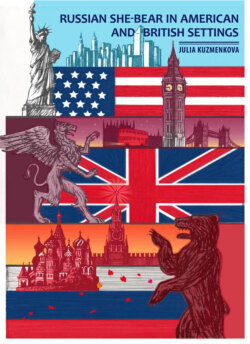Читать книгу Russian She-bear in American and British Settings - Юлия Кузьменкова - Страница 4
Part 1. America and Americans: from ‘wow’ to ‘how’
First surprises
ОглавлениеIn fact, there was quite a lot to discover, both about everyday life and professional issues – and it was not easy to say which was more important, at least at the beginning. No wonder our first impressions were mostly concerned with the surrounding world realities – plastic cards, taxes and tips.
Plastic cards seemed to be universal; they served not only as phone cards (which was very convenient because they were rechargeable) but also as keys to hotel rooms and elevator passes – another advantage that saved us the trouble of touching metal which was very unpleasant because of the unusual abundance of static electricity. Taxes were also a real source of confusion as arithmetic is commonly not among EL teachers’ strong points. Dealing with taxes proved rather frustrating because they should be added to prices indicated on labels and to fees; so hiring a taxi we preferred to ask in advance how much it would cost. And finally, tips, one more source of irritation which remained as such till the end of our visit since we never learnt properly whom to tip, how much and what for.
There remained still another vital element of everyday life threatening to ruin the beginning of that promising period of our professional career. What I mean here is an innocent traveller’s check. The project managers probably underestimated the effect that our complete lack of practice in dealing with it would have… The Monday morning programme began rather early but we courageously survived the first three opening speeches succeeded by two lectures and then it happened. We received quite a sum of money to be paid for our living and daily expenses in those travellers’ checks and during a ten (!) minute break we had to learn how to sign and use them properly. And if it were only that! We fell into a trap not uncommon for Russians – we began to convert the sum into roubles and computations though simple were very time consuming. Don’t lose your head, now that you’re incredibly rich – my giggling opponent eagerly prompted me. But for the lack of time I couldn’t get involved into inner dialogues.
The result of comparison was astonishing but predictable – here was a society with higher standards of living (in spite of the fact that prices were often even lower than in Moscow) and getting used to handling new currency was only a question of time. No wonder, one of the lecturers whom we happened to meet later in New York remembered us as ‘those Russian ladies who were absorbed by toying with money for the greater part of the presentation’. Luckily the professor seemed to bear us no grudge – he was well (from our point of view, of course) rewarded for his efforts. He found a good pretext for ignoring our questions after the lecture – he simply handed out summaries to review when our money-shock had gone and busied himself signing a somewhat ‘astronomic’ honorarium, a sum unheard of for a Russian teacher in those days, much exceeding an average monthly salary. For us that came as a sort of an aftershock.
